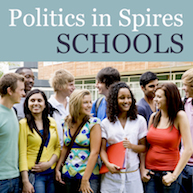
What would change if the voting age was lowered to 16?
This autumn, in his speech to the Labour party conference, Ed Miliband called for the voting age to be lowered to 16. This follows legislation by the SNP government in Scotland to allow 16 and 17 year olds to vote in the forthcoming referendum on Scottish independence. Explanations of the merits of extending the franchise to younger people normally begin with statements such as ‘if someone’s old enough to X…’ with X replaced by ‘marry’, ‘go to war’, ‘pay taxes’ and so on. We might note that these are, at best, weak arguments since 16 year olds can only marry and join the army with their parents’ permission and even 5 year olds pay tax in the form of VAT when their pocket money is translated into sweets.[1] Either way, it seems likely that the SNP’s decision was not really based on the merits of the case and was simply a narrow electoral consideration. Young people are generally in favour of Scottish independence, so allowing them to vote will increase the proportion of people voting yes. It seems reasonable to think that this is also the major reason why the Labour party is now interested in lowering the voting age in general elections to 16. Young people are seen as more likely to vote Labour, so allowing them to vote will boost Labour’s prospects in future elections. What is never quite clear is whether these are sensible conclusions. Would the entrance of 16 and 17 year olds into the electorate make much difference?










